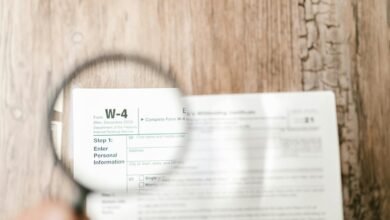Caller Protection Defense Intelligence Verification Office 3509930490 3511903473 3807631673 3357474918 3533522702 3664774852

The Caller Protection Defense Intelligence Verification Office plays a crucial role in enhancing communication security. It employs sophisticated methods to verify caller identities, particularly in the face of rising phone scams. By focusing on specific numbers, such as 3509930490 and 3511903473, the office aims to differentiate between legitimate calls and fraudulent activity. This process raises essential questions about the effectiveness of current strategies and the evolving landscape of telecommunications security. What implications might this have for users?
Understanding Caller Verification Processes
Although the caller verification process may vary across different organizations, its fundamental purpose remains consistent: to authenticate the identity of individuals initiating communication.
Effective caller authentication relies on advanced verification technology, which employs various methods such as biometric data, two-factor authentication, or knowledge-based verification.
These techniques enhance security and foster trust, ensuring that communications occur between legitimate parties while minimizing the risk of fraud.
The Importance of Identifying Unknown Numbers
Identifying unknown numbers plays a significant role in enhancing communication security and user confidence. By accurately recognizing callers, individuals can mitigate unknown caller risks, such as scams and harassment.
Increased caller ID accuracy fosters a safer communication environment, empowering users to make informed decisions about their interactions. Ultimately, this process contributes to a more secure and trustworthy connectivity landscape, promoting personal freedom and autonomy in communications.
How the Caller Protection Defense Intelligence Verification Office Operates
The Caller Protection Defense Intelligence Verification Office operates as a critical entity in the realm of telecommunications security.
It employs various verification methods to ascertain caller identity, ensuring that legitimate communications are distinguished from fraudulent attempts.
Tips for Protecting Yourself From Phone Scams
As phone scams become increasingly sophisticated, individuals must adopt proactive measures to safeguard their personal information and finances.
Enhancing scam awareness by regularly educating oneself on common tactics is essential. Utilizing caller ID to verify incoming calls can help identify potential threats.
Additionally, never sharing personal information over the phone unless certain of the caller’s identity contributes significantly to reducing vulnerability to scams.
Conclusion
In conclusion, the Caller Protection Defense Intelligence Verification Office plays a crucial role in combatting phone scams by implementing robust verification processes, enhancing user trust, and safeguarding communication security. By distinguishing legitimate calls from fraudulent ones, it empowers users to make informed decisions, reinforces the importance of caller identification, and ultimately contributes to a safer telecommunications environment. As technology evolves, continuous vigilance and proactive measures will remain essential in defending against evolving threats in the realm of communication.





